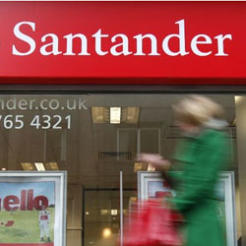A £30m loan fund for the charity sector has been launched today with a £13.5m investment from Santander – believed to be the first time a high-street bank has made a direct investment in social finance.
The Third Sector Loan Fund will be run by Social and Sustainable Capital, a social lender set up in 2012.
The fund has also received a £1.5m investment from the Social Investment Business and a £15m investment from Big Society Capital. The fund says it is now the largest loan fund for the charity sector.
It will make loans of between £250,000 and £3m to social sector organisations, chiefly at rates of between 6 and 12 per cent, and is open for applications from today. The fund will aim to offer only loan capital, and will not become involved in other forms of social finance such as bonds, quasi-equity or social impact bonds.
The SIB investment is in a form “similar to a repayable grant” said Nat Sloane, chair of SASC, meaning if the fund does not make any profit, SIB’s capital will be lost first. BSC will take more risk on its investment than Santander, and will receive a higher level of interest in exchange.
Santander is treating the investment as a purely commercial one, and expected to make a market rate of return.
“What excites me most about this is the mixture of philanthropic and commercial capital,” Sloane said. “Santander has come in on the same basis it would make an investment in a mainstream fund.”
He said he hoped the fund could show this model could be replicated elsewhere.
The fund is still seeking to grow the amount of capital it has to lend. Sloane said there was a pipeline of former SIB investees who wanted to access capital worth £300m and were not able to, and this showed the social finance market was under-served.
Marcellino Castrillo, managing director of SME banking at Santander, said he expected that other mainstream financial institutions were likely to become involved in the social investment market. He also said that he expected the fund to act as a channel to help charities access mainstream finance.
“Banks don’t know about this sector and don’t understand it so they’re reluctant to lend,” he said. “As a bank this teaches us how we should approach the sector.”
While this is the first time a high street bank has made a direct social investment, other banks have lent to the sector before. HSBC, Barclays, Royal Bank of Scotland and Lloyds Banking Group put money into Big Society Capital – a wholesaler which does not lend directly to charities – as part of the Project Merlin agreement with the government to lend more to businesses.









